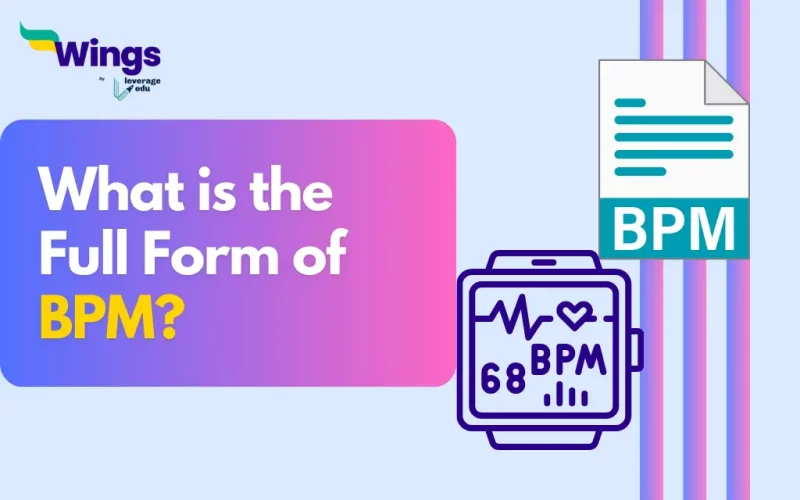The Full Form of BPM is Business Process Management in the world of management and business and Beats Per Minute in the medical field. Some abbreviations have many Full Forms, such as BPM Full Form which are used in different contexts. Read on to learn about both the BPM Full Forms in this blog.
BPM in the Business Field
Table of Contents [show]
In the field of business management, the Full Form of BPM is Business Process Management. It is a systematic approach to improving the effectiveness and efficiency of an organization’s management and business approach. Moreover, BPM can be used to manage any type of process, whether simple or complex.
BPM’s primary objective is to simplify an organization’s procedures to maximize performance. Furthermore, businesses can increase their productivity, efficiency, and level of service with the aid of BPM. Additionally, it aids in their improved risk and compliance issue management.
There are many principles that are covered under BPM:
- The processes should meet the needs of the organization.
- It should be monitored constantly.
- Moreover, it should be flexible.
- There needs to be a clear understanding of the organization’s processes.
Also Read: What is the full form of NOTA?
BPM in the Medical Field
The Full Form of BPM in the medical field is Beats Per Minute. It is known as the term to define the tempo of the heartbeat, which is measured in the number of beats per minute.
- However, the heart rate can vary from one person to another according to various factors.
- This includes their physical needs, the ability to absorb oxygen, and activities such as sleep, anxiety, stress, and physical exercise that can cause a change in the heartbeat.
- Moreover, for a normal adult heart rate ranges from 60 to 100 beats per minute.
- A lower resting heart rate usually indicates improved cardiovascular fitness and more effective cardiac function.
- A well-trained athlete, for instance, might have a resting heart rate that is closer to 40 beats per minute.
Also Read: What is the Full Form of NASSCOM?
Importance of Beats Per Minute
Beats Per Minute are important in the medical field for many reasons, some of which are as follows:
- Adults usually have heart rates between 60 and 100 BPM. However, this might vary based on age, fitness level, and medication use.
- BPM can be used to track the effectiveness of treatment for heart-related conditions as well as to identify variations in heart rate that may point to a developing problem.
- Lastly, it also helps in the evaluation of a person’s level of fitness.
Also Read: What is the full form of GVA?
Popular Full Forms
FAQs
Key principles of BPM include ensuring that processes meet the organization’s needs, continuous monitoring of processes, maintaining flexibility to adapt to changing requirements, and having a clear understanding of the organization’s processes to facilitate improvement and optimization.
BPM helps businesses streamline their processes to enhance productivity, efficiency, and service levels. By identifying areas for improvement, BPM enables organizations to optimize their operations, reduce costs, and better manage risks and compliance issues.
In the medical field, BPM refers to the measurement of the tempo of the heartbeat, indicating the number of beats per minute. Monitoring BPM is crucial for assessing cardiovascular health, tracking the effectiveness of treatment for heart-related conditions, and evaluating an individual’s level of fitness.
We hope this blog has helped you understand the BPM Full Form and everything related to it. If you want to know more, find the full forms list on our blog. In the world of short forms, you can rely on the Leverage edu page to know about more full forms like this! Connect with us study abroad experts to achieve your international dream today!
 One app for all your study abroad needs
One app for all your study abroad needs















 45,000+ students trusted us with their dreams. Take the first step today!
45,000+ students trusted us with their dreams. Take the first step today!
